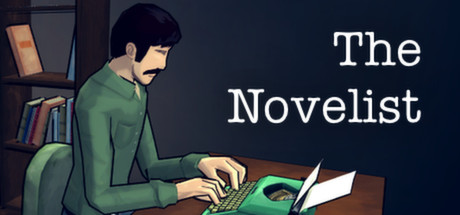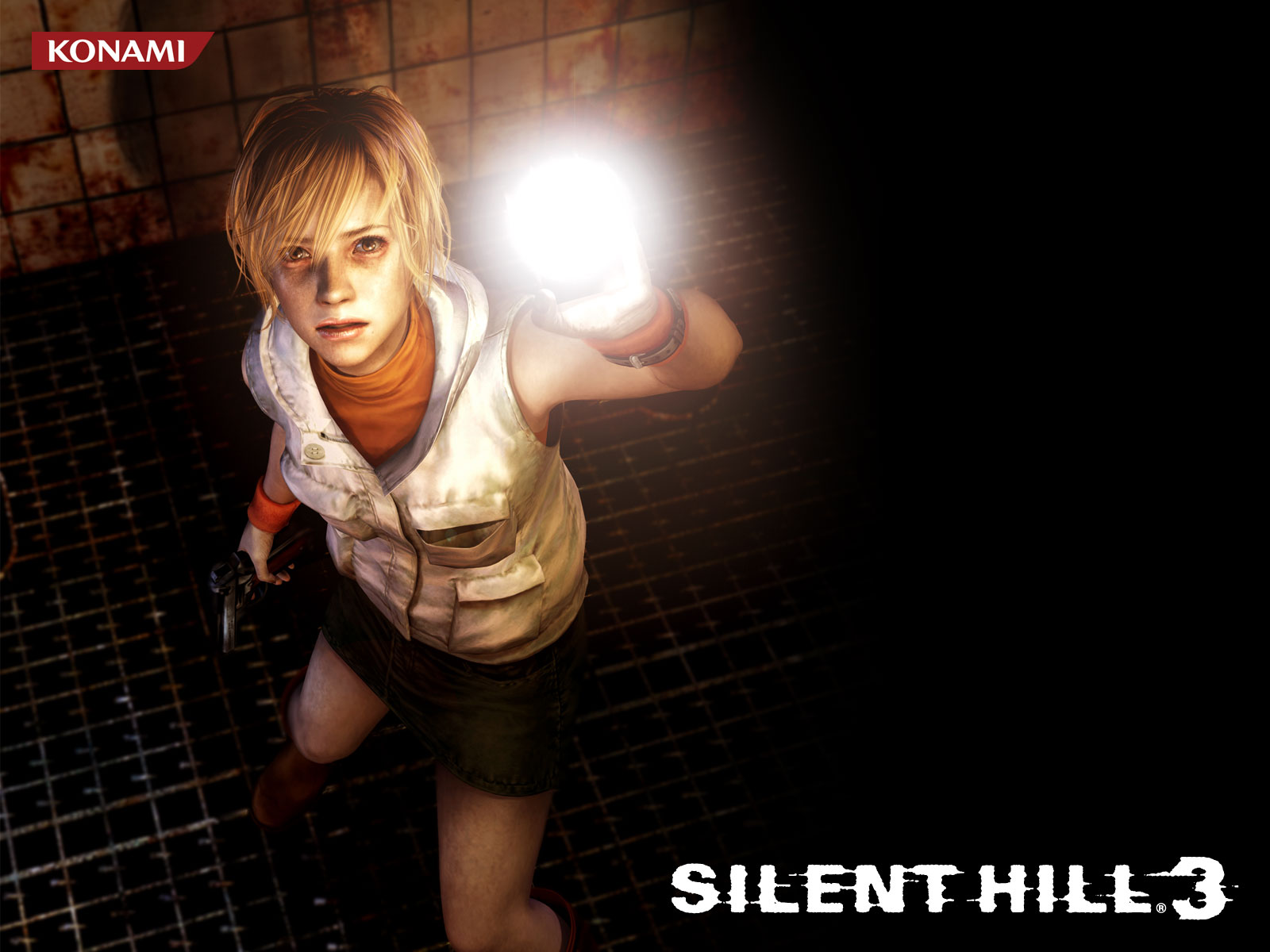So, what do I do in between writing sessions? Video games are one thing, other than reading or watching movies or television (unless I'm working in my day job, which is pretty much 66% of my weekdays).
I can already hear the whispers of disapproval! Hah! After all, Stephen King disapproved of television shows, what more for video games? *Gasp*
Let's just say, I've learnt a very long time ago that the video game is just another medium like your good ol' folk songs and poetry, just that it's a medium that, like the novel, isn't as widely accepted because it's, well, novel, at least compared to your tried and true ancient forms of art.
In fact, I'd say that video games are indispensable to me, and have become a very permanent part of my writer's psychology. Here are 5 video games I've played that has played some part in my writing life, or even influenced my writing:
(Note that I have very little access to consoles, so I've played all my games on the computer)
Oh, and disclaimer: Minor spoilers alert! Will try not to spoil too hard though.
5) Minecraft (5
The charm of Minecraft doesn't come from its story or plot. Simply put it, it has none. The charm of Minecraft comes from how that literary void gives your imagination a kick into an overdrive. If you're the right sort, you'll fill in the blanks just fine. Why are you in the middle of the wilderness? Why is there no one else? Why is the world made of blocks? And why don't you have any fingers!?
Most importantly, this story-generating setting is aided by just how much you can manipulate the environment around you. You can craft tools, furniture, build buildings, etc. It helps you make sense of the story you impose on the world of Minecraft.
As such, this Lego-like game makes a very good massage chair for your creativity. It soothes your mental muscle, trains it and it's not a painful process at all, quite the opposite!
The reason why it's at the bottom of the list is exactly that: It has no plot nor story, and as such it offers nothing specific to the writer. That's why it's so popular, it's for everyone, From ages 5 and up, of any background.
Its open-ended nature may also mean that you'd derive nothing for your writing life if the conditions aren't right. I mean, just yesterday, the Minecraft Realm I was in was devoid of any other players, and all I did was to slaughter some cows in my ranch and look at how my farm is doing - It's relaxing, but that's it.
4) The Stanley Parable (4
The Stanley Parable is about a man named Stanley, working in his office as usual... Until he discovered that everyone in the building has disappeared - Or is that what it's all about? This game is called a 'walking simulator' by gamers, but a better way to describe it is to call it a highly interactive video game choose-your-own-adventure novella, with a very, VERY prominent narrator.
Let's just say that the twists that this game has in store for you will turn up in double or triple knots, which leads me to what this game has to offer.
The first time I've seen it in its development was as a Half-Life mod probably over a decade ago. Even then, it was marketed as an experiment in storytelling. It was then developed into a real stand-alone game on its own. To great success.
This game will have you question the relationship between the Player Character, Narrator and Player. In fiction terms, the Character (Mainly the Protagonist), Narrator and Reader. If you were never aware of the intricacies of the relationship between these three entities surrounding a story, then The Stanley Parable can serve as a crash course in it.
While not directly addressing writing, it comes really close, and as you can see above, writing as an analogy for the writer's education is easily possible. You'll learn a lot about storytelling, and its creative, fourth-wall-busting plot and story will likely do wonders to your list of plot ideas, not to mention your writing arsenal.
3) The Novelist (3
I'll be honest, I've only played an hour of this game. But it isn't because of poor story, plot or characters that drove me away. It isn't even because the presentation of the game is sacrificed for the sake of story (No, it isn't). Surprisingly, it's due to the inclusion of serious gameplay mechanics that actually drove me away.
Yep, that's right, the storytelling of this game is so good that actual and well-done gameplay is a detriment to it!
In this game, you play the role of a ghost-like entity in a holiday home, when a novelist and his family moved in. The novelist is having a great struggle against writer's block, and all the distractions of real life (including his family) impeding his writing. Your job is to learn about the family, and try to help (or failing to, hinder) the novelist, in the way you see fit.
The relation of this game to writing is obvious. It's a game about a writer, and it features the problems of a writer on the forefront. It'll sing to you if you're a true writer. If you aspire to be one, it'll give you an unadulterated (as far as I know) view of what it's like to be a writer, and not the often wrong popular perception of it.
Now, if you'll excuse me, I'm going to go ahead and try to finish it. There's an option to turn off most of the gameplay, by the way, to turn it into a video game novel. Yeah, I'm thinking it's supposed to cater to the likes of me.
2) Silent Hill Series (2
The Silent Hill series is known to contain some of the scariest video games in existence. I can vouch for the franchise firsthand, as I've played Silent Hill 3 and 4. What can I say? I'm a latecomer to the franchise.
The scare tactics employed by the franchise's core games (everything else just aren't as good), which I'd say would be from Silent Hill 1 through to 4, are what Stephen King would have been proud of. And you know what? Stephen King had a hand in starting the series! The developers had read Stephen King's The Mist back in the 80s or 90s (can't remember), and the novella inspired the titular setting and even a Pterodactyl-type monster. The rest is history.
Other than this very loose connection to one of the grand masters of horror, the story of the franchise is superb, one-of-a-kind. By that, I mean the lore and backstory surrounding the town of Silent Hill and what has happened to it.
The plot, I feel, did not really take off to greatness until Silent Hill 3 and 4. Before those games, it's mostly all about the protagonist looking for someone. Sure, there are struggles and some character development here and there, but there's more to an engaging plot than that.
The characters are awesome from 2 onward to 4. In the first iteration of the game, Harry Mason is a writer looking for his daughter - Nothing much beyond that. In 2, we get more characterisation with a really conflicted husband in a weird situation. In Silent Hill 3, it's a teenage girl with a troubled past and how she eventually learn to come to terms with it. In 4, it's a case of the supporting characters overshadowing the protagonist, as Henry Townsend is meant to let the player fill his shoes.
Needless to say, the Silent Hill franchise is an excellent treasure trove of examples when it comes to setting, such as atmosphere, lore and backstory, as well as plot, character, hell, anything to do with storytelling. For horror writers, you'll get more than enough of the gross-out, horror and terror.
You'll probably get ideas when it comes to monster creation, and tying those monsters to the plot. I know, because these games had taught me a thing or two about horror and monsters in general, something that I'd still struggle to learn about for years to come.
Who knows? Play it, and its darkness might even contaminate your next novel. :)
1) Alan Wake (1
And finally we've come to the champion of video games for writers.
Alan Wake, at its core, is a psychological thriller, but fiction genres can be very murky on the lines. It certainly has many aspects of horror such that it could easily be put in that category. But most importantly, it is a game that works, I mean, on every level. You see all those other games up there on this list? Yeah, Alan Wake has almost everything they offer.
You want a good gameplay and open world like Minecraft? Alan Wake has got you covered. You have many ways to dispatch your enemies, and many ways to travel, by a number of cars or on foot. You can explore, and there are many secrets to find.
You want innovative and self-reflexive storytelling? Alan Wake's your man... Literally. You'll find suspense, plot twists and frame stories, that the story has clawed through your screen. These are stuff that few video games have, and heck, even most books aren't that complex for good or bad. Alan Wake himself's got some writing chops to show off as well, in the form of frame-storied manuscript pages. A world within a world... Within a world?
You want to understand the struggles of a writer or empathise with a fictional writer as a writer? Alan Wake will accompany you to the bar. The character is a writer on a holiday... Because he couldn't write for 3 years. You'll get a very close look at his psyche, and he's not your stereotypical writer.
Or how about awesome story, plot and characters? No worries, you got Alan Wake and gang! Surrounding the titular Writer-Character is a town with a secret, populated by some interesting and memorable characters, and did I mention that the plot twists and turns and goes in all kinds of interesting directions?
And lastly, there are a few DLCs for Alan Wake, and no, they don't suffer from Sequel-itis.
So go enjoy yourself! And feel inspired in the meantime! Because as writers, it's important to mix business with pleasure. Bleh... Time to go back to my office work...





No comments:
Post a Comment